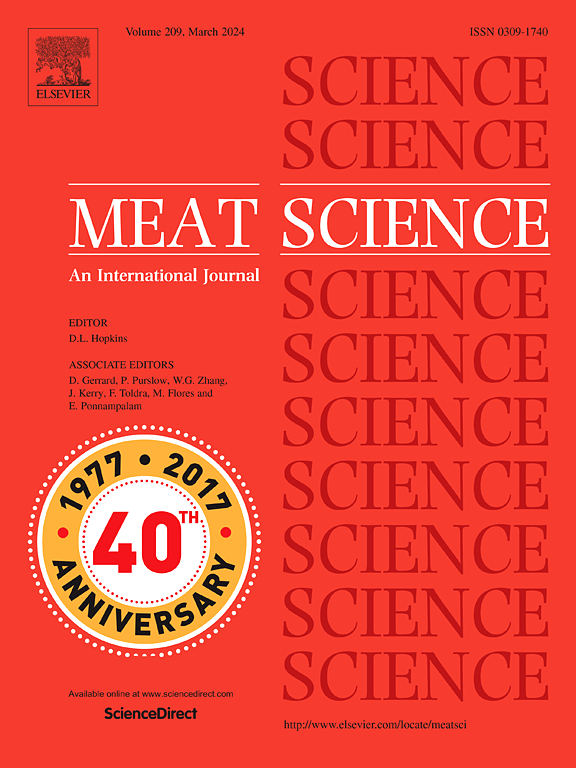Framing the meat consumption transition: A statistical learning approach to explore the factors shaping young adults' food choices in Germany and Italy
IF 6.1
1区 农林科学
Q1 Agricultural and Biological Sciences
引用次数: 0
Abstract
This study examines the factors driving changes in meat consumption among young adults in Germany and Italy—two high-income countries that, despite their distinct culinary traditions, have seen a convergence in meat consumption levels in recent years. The research addresses two aims: to examine the role of environmental attitudes in shaping dietary choices and to explore the impact of socio-demographic factors on meat-consumption patterns. The analysis employs the General Ecological Behavior (GEB) scale, a robust tool that provides a comprehensive assessment of pro-environmental attitudes as latent traits influencing behavior. It is complemented by the Random Forest, a machine learning algorithm that helps exploring complex, non-linear relationships among predictors. Data were collected from 580 respondents aged 18–30 through an online survey. The results reveal that environmental attitude is the strongest predictor of dietary habits, followed by household composition. German respondents, with higher environmental attitudes, were more likely to adopt vegetarian or vegan diets, whereas Italian respondents, influenced also by family dynamics, tended towards meat-based or flexitarian diets. These findings highlight the importance of gaining a deeper understanding of the underlying motivations behind the transition to a flexitarian diet, which could serve as a model for the future of meat consumption in Europe.
构建肉类消费转型:一种统计学习方法,探讨影响德国和意大利年轻人食物选择的因素
本研究考察了德国和意大利这两个高收入国家的年轻人肉类消费变化的驱动因素,尽管这两个国家的烹饪传统各不相同,但近年来肉类消费水平趋于一致。这项研究有两个目的:研究环境态度在塑造饮食选择中的作用,探索社会人口因素对肉类消费模式的影响。该分析采用了一般生态行为(GEB)量表,这是一个强大的工具,可以全面评估亲环境态度作为影响行为的潜在特征。随机森林是一种机器学习算法,可以帮助探索预测因子之间复杂的非线性关系。通过在线调查收集了580名年龄在18-30岁之间的受访者的数据。结果显示,环境态度是饮食习惯的最强预测因子,其次是家庭构成。德国受访者的环保态度较高,更有可能采取素食或纯素食饮食,而意大利受访者也受家庭因素的影响,倾向于肉类或弹性素食饮食。这些发现强调了深入了解向弹性素食饮食过渡背后的潜在动机的重要性,这可以作为欧洲未来肉类消费的典范。
本文章由计算机程序翻译,如有差异,请以英文原文为准。
求助全文
约1分钟内获得全文
求助全文
来源期刊

Meat Science
工程技术-食品科技
CiteScore
12.60
自引率
9.90%
发文量
282
审稿时长
60 days
期刊介绍:
The aim of Meat Science is to serve as a suitable platform for the dissemination of interdisciplinary and international knowledge on all factors influencing the properties of meat. While the journal primarily focuses on the flesh of mammals, contributions related to poultry will be considered if they enhance the overall understanding of the relationship between muscle nature and meat quality post mortem. Additionally, papers on large birds (e.g., emus, ostriches) as well as wild-captured mammals and crocodiles will be welcomed.
 求助内容:
求助内容: 应助结果提醒方式:
应助结果提醒方式:


